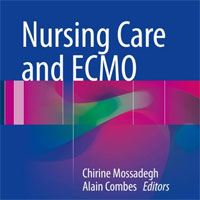Tag: vasopressors

Antibiotics for the Critically Ill Patient
We spend a lot of time obsessing over the finer details of critical care: which fluid is best? which vasopressor is best? will another liter of fluid help? These details are important, but for a septic patient something... read more

Peripheral Vasopressors: The Myth and the Evidence
You are working in a small, rural hospital staffed by one physician and one nurse. There are multiple sick patients, all of whom require your attention, but the sickest is probably the 62 year old female with pneumonia and... read more

Terlipressin vs. Norepinephrine As Infusion in Patients With Septic Shock
In this multicentre, randomised, double‑blinded trial, we observed no difference in mortality between terlipressin and NE infusion in patients with septic shock. Patients in the terlipressin group had a higher number of... read more

Fluid Responsiveness in a Hemodynamically Unstable Patient
Only half of patients who are hemodynamically unstable will respond to a fluid bolus. There are no historical or physical examination findings that can help us decide whether a patient is a fluid responder, but we must treat... read more

Septic Shock: Innovative Treatment Options in the Wings
Vitamin C, angiotensin-II, and methylene blue are emerging options on the cutting edge of refractory septic shock treatment that require more investigation, but nevertheless appear promising, Rishi Rattan, MD, said at the... read more

The Precogs Take On Sepsis
It seems like every week there’s another publicized instance of our impending replacement by artificial intelligence. Big Data, they say, is going to free us of the cognitive burdens of complex thought while maximizing... read more

Do phenylephrine and epinephrine require central access?
Until recently I believed that prolonged vasopressor administration requires a central line, to avoid extravasation. I lumped together all vasopressors, treating them all as equal. I used the occurrence of an extravasation... read more

Intensive Care Medicine in 2050: Vasopressors in Sepsis
Vasopressors are used in sepsis when hypotension is assumed to be mainly due to a decreased arterial tone. However, the appropriate time to initiate vasopressors is not clearly defined, and fluid administration is most... read more

New York State Sepsis Reporting Mandate Appears to Improve Care and Reduce Deaths
A New York State requirement that all hospitals report compliance with protocols to treat severe sepsis and septic shock appears to improve care and reduce mortality from one of the most common causes of death in those who... read more

Validation and Clinical Implications of the IDSA/ATS Minor Criteria for Severe Community-Acquired Pneumonia
These findings support the use of the IDSA/ATS minor criteria to predict hospital mortality and guide ICU admission in inpatients with Community-Acquired Pneumonia (CAP) who do not require emergency mechanical ventilation... read more

Sepsis Guidelines Spark EM Petition
It took all of one day for emergency physicians to organize opposition after an update to the Surviving Sepsis Campaign Bundle was released online. The day after the new version was released, Scott D. Weingart, MD, the editor-in-chief... read more

The Myth of Vasopressors and Ischemia
Despite the widespread clinical use, and their well-documented life-saving properties, vasopressors are often maligned, accused of causing ischemia to fingers, toes, mesentery, kidneys, and so forth. Not only is the evidence... read more
Pushing Pressors in the Periphery
The mantra of the Broome Docs site is "bringing great care, out there." And today's topic goes right to the heart of that theme. It is one of my pet topics – so apologies in advance if the rant is too long or detailed.... read more

Incidence of hypotension according to the discontinuation order of vasopressors in the management of septic shock
Tapering NE rather than AVP may be associated with a higher incidence of hypotension in patients recovering from septic shock who are on concomitant NE and AVP. However, further studies with larger sample sizes are required... read more








